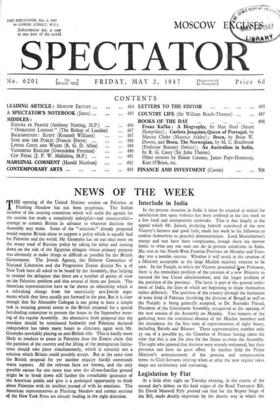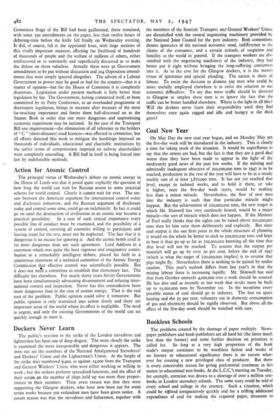Legislation by Fiat
At a little after eight on Tuesday evening, in the course of the second day's debate on the final stages of the Road Transport Bill, Sir David Maxwell Fyfe pointed out that for the Report Stage of the Bill, made doubly important by the drastic way in which the Committee Stage of the Bill had been guillotined, there remained, with some 35o amendments on the paper, less than twelve hours of debating-time before the knife fell finally on Wednesday evening. It did, of course, fall at the appointed hour, with large sections of this vitally important measure, affecting the livelihood of hundreds of thousands of people and the welfare of millions of others, either undiscussed or so summarily and superficially discussed as to make the debate on them valueless. Actually there were 92 Government amendments to be put without discussion and 204 Opposition amend- ments that were simply ignored altogether. The advent of a Labour Government to power may be good or bad for the country—that is a matter of opinion—but for the House of Commons it is completely disastrous. Legislation under present methods is little better than legislation by fiat. The Government, having committed itself, or been committed by its Party Conference, to an overloaded programme of doctrinaire legislation, brings in measure after measure of the most far-reaching importance and forces them half-discussed on to the Statute Book in order that one more dangerous and unpromising economic experiment may be initiated. In the case of the Transport Bill one improvement—the elimination of all reference to the holders of " C " (short-distance) road licences—was effected in committee, but all efforts directed this week to mitigate the hardships imposed on thousands of individuals, educational and charitable institutions by the unfair terms of compensation imposed on railway shareholders were completely unavailing. A Bill bad in itself is being forced into law by indefensible methods.



































